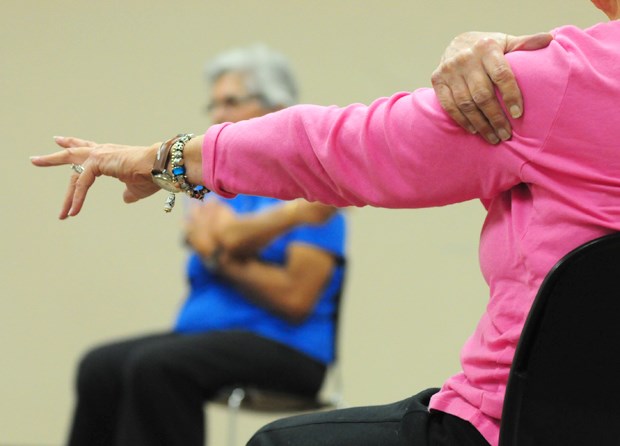How’s your hearing these days? How’s your spouse’s hearing?
Many of us over the age of 65 experience hearing loss and this can negatively impact our lives. I know that my hearing is not what it was, nor is my spouse’s, and this sometimes causes a little friction.
The Canadian Hard of Hearing Association estimates that in Canada more than 60 per cent of seniors over the age of 65 have hearing loss. The association says that the most common cause is presbycusis, which affects both the ability to hear and understand
certain sounds.
It also appears that most hearing loss is due to aging. On the Canadian Hearing Service website, its states that, “hearing loss is the third most prevalent chronic condition in older adults and the most widespread disability Its prevalence rises with age – 46 per cent of people aged 45 to 87 have hearing loss.”
For older people who had good hearing all their lives, hearing loss can be frustrating and concerning. According to the CHHA, older adults who are experiencing a hearing loss may stop socializing, going to events that were important to them in the past and become fearful about being alone because they are afraid they may not hear the phone, doorbell, other household sounds or alarms. Some older adults can become socially isolated from their friends and may even become lonely and depressed as a result of the hearing loss. These factors may cause the breakdown of support networks and as I have said in my columns before: “Research has shown that it is important for seniors to stay engaged as it decreases the chance of becoming isolated. Social isolation and exclusion are related to serious negative health effects and reduced quality of life for seniors.”
Other serious impacts of unmanaged hearing loss, according to the Canadian Hearing Service website, include an increased risk of cognitive decline and developing Alzheimer’s disease and other forms of dementia. The Hearing Service states that, “research has revealed that there is a greater risk of falling with hearing loss, and the risk of falling increases with the severity of the hearing loss.”
Though some hearing loss is not reversible, according to On Health, the November 2019 edition of Consumer Reports, some problems are related to conditions that could be fixed. These include too much earwax, clogged sinuses, some over the counter medications and ear infections. The article recommends seeing a doctor who may consider these conditions first before suggesting a hearing exam.
The CHHA states: “with the help of hearing aids, assistive listening devices, the support of understanding family and friends, many elderly hard of hearing people continue to lead happy, independent and fulfilling lives.”
Your friends and family could be a help to you with these effective and simple tips: speak clearly, make sure the hard-of-hearing person can see you (do not try to carry a conversation from another room), eliminate background noise, make eye contact, be patient when you have to repeat something, encourage the person to continue with leisure and social activities, remember to include the person in group conversation and learn as much as you can about communicating with a hard of hearing person.
Unfortunately, short of technical assistance there is little we can do about hearing loss and aging. However, getting properly fitted hearing aids works for many older people experiencing hearing loss. It also helps to get support from a spouse, caregiver or friend in your adjustment to the device.
Lastly, you may want to discuss your hearing with your doctor and they can recommend a hearing specialist. If that seems daunting, many seniors’ centres on the North Shore hold hearing clinics regularly, which may provide an opportunity to find out if you have a hearing loss. Also, in association with the Canadian Hard of Hearing – North Shore Branch, Silver Harbour Seniors’ Activity Centre and West Vancouver Seniors’ Activity Centre offer a program called “Sound Advice.” Discussion topics include technology, speech reading, coping strategies, improving relationships, improving hearing environments and more.
The Canadian Hard of Hearing Association can be reached at 604-926-5222 for more information about their programs.
Make sure to get your hearing checked.
Margaret Coates is the co-ordinator of Lionsview Seniors’ Planning Society. She has lived on the North Shore for 48 years and has worked for and with seniors for 21 of those years. Ideas for future columns are welcome Email: lions_view@telus.net



